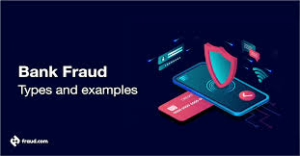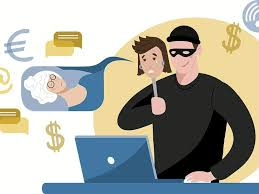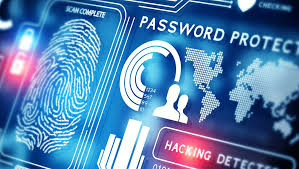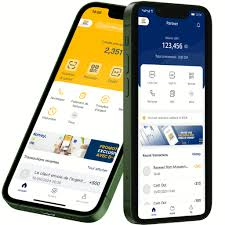The Prevalence of Online Banking Scams
Online banking is undeniably a double-edged sword. While it streamlines your financial transactions, it also opens doors for cybercriminals. These malicious actors employ a range of strategies to infiltrate your accounts, most of which involve tricking you into divulging your sensitive information.

Phishing Scams: The Deceptive Artistry of Fraud
One of the most prevalent forms of online deception is phishing. In these schemes, scammers craft messages—be they texts or emails—that appear to originate from your bank. These communications often carry an urgent tone, prompting you to take immediate action, such as verifying your details to prevent your account from being locked.
You might find yourself staring at a message that includes a link purportedly directing you to your bank’s official website. However, upon clicking, you’re actually rerouted to a cleverly disguised fake site that mimics your bank’s appearance. If you unwittingly input your account details there, the scammers are quick to capture that information for their illicit purposes.
In some cases, these fraudulent emails will instruct you to call a customer service number that doesn’t belong to your bank. If you do call, you’ll be greeted by someone whose sole intent is to extract personal information from you—perhaps your date of birth or Social Security number (SSN).

What makes these scams particularly insidious is that sometimes, the scammers already possess fragments of your personal data. They might casually reference details like your birth date or the last four digits of your SSN, information they could have harvested from your social media profiles or obtained through a data breach. By leveraging this knowledge, they create an illusion of trustworthiness, making their ploys all the more compelling.
As we navigate this complex landscape of online banking and its associated risks, understanding these threats and remaining vigilant can empower you to protect your financial well-being. Through awareness and caution, you can enjoy the benefits of modern banking without falling victim to those who lurk in the shadows.
Cracking passwords
Another way hackers may try to access your bank account is to steal or guess your password. If they can log into your account, they can use your sensitive information for personal gain, otherwise known as identity theft. They can then open credit card accounts in your name, purchase merchandise, or transfer money out of your account.
Cybercriminals use technology to guess billions of passwords per second. However, it’s more challenging to guess long passwords with a combination of letters and numbers.

For example, a computer can instantly guess a password consisting of eight letters. Adding one uppercase letter extends the time it takes to crack a password to 22 minutes. In contrast, a 12-character password with an uppercase letter, a number, and a symbol would take the computer 34,000 years to crack.
Computer viruses
When you click a link or attachment in an email or download fake antivirus software, your device can become infected with malicious software or malware. A virus can let hackers view data from your device and use it to access your financial information or bank accounts.

Consider getting antivirus software to help protect your devices, like what’s offered through McAfee Total Protection. Our award-winning antivirus software provides 24/7 real-time threat protection against online threats like malware, viruses, ransomware, and phishing across Apple and Android systems.
Targeting computers on public Wi-Fi networks
Public Wi-Fi gives you convenient, free access to the internet in restaurants, airports, and department stores. But it can also be easy for hackers to see your private information on an open network that doesn’t require a password.

If you log into your online bank account, your login information could be exposed, making you vulnerable to bank fraud. Shopping online with public Wi-Fi could also expose your credit card information.
In the vast digital landscape, where convenience often meets risk, safeguarding your online banking is essential. Imagine waking up one morning, eager to check your balance, only to find unexpected transactions draining your account. This scenario is all too real for many who fall prey to online banking scams.
To shield yourself from cybercriminals, start by setting strong, unique passwords for your banking accounts. Avoid using easily guessed information like birthdays or common words. Instead, opt for a mix of letters, numbers, and special characters, creating a fortress around your financial data.
Next, enable two-factor authentication whenever possible. This adds an extra layer of security by requiring a second form of verification, making it significantly harder for hackers to gain access.

Be cautious about unsolicited emails or messages claiming to be from your bank. Always verify the sender’s identity before clicking on any links or providing personal information. Cybercriminals often employ sophisticated tactics to mimic legitimate institutions.
Monitor your bank statements and account activity regularly. If something seems off, report it immediately. Remember, vigilance is your best defense against scams lurking in the shadows of the Internet. By adopting these practices, you can navigate the world of online banking with confidence and peace of mind.
Maxthon: Your Companion on the Digital Odyssey

As we navigate the constantly shifting tides of the internet, stepping into the online world can often resemble an exhilarating expedition through an uncharted wilderness. To journey confidently and securely through this vast digital expanse, having a dependable web browser is of utmost importance.
Enter Maxthon, a remarkable choice designed specifically for those utilizing Windows 11. This browser seamlessly integrates the latest innovations of this sophisticated operating system, providing users with an array of cutting-edge tools that enhance their online adventures.
At the heart of Maxthon’s purpose lies a steadfast dedication to user safety and privacy. Armed with a powerful suite of privacy features, this browser empowers individuals to explore the web with freedom while safeguarding their personal data from prying eyes.
What sets Maxthon apart in a crowded marketplace is its relentless focus on delivering robust functionalities completely free of charge. Its intuitive interface is designed for everyone, offering easy access to the essential tools needed to navigate the intricate web of information and connections that the internet has to offer.
With Maxthon by your side in this digital quest, you’re not just browsing; you’re embarking on a secure and enriching journey through the boundless realms of the online world. Each click leads to new discoveries, as you traverse a landscape where information flows like a river, and connections form like bridges across vast distances. In this odyssey, Maxthon stands as your trusted ally, guiding you safely through every twist and turn of your digital exploration.
